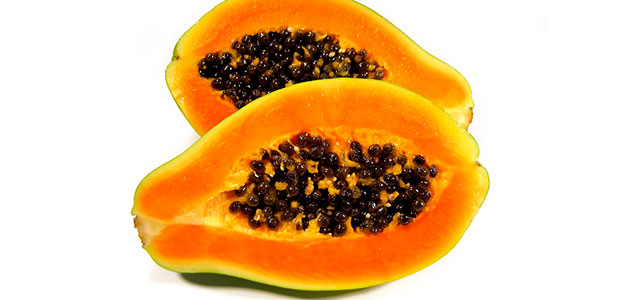Advertisement
Natural Cancer Care
Good nutrition is essential in treating cancer. Natural medicine can boost nutrition levels when eating right becomes difficult. The importance of high-quality nutrition in the battle against cancer cannot be overstated. Cancer patients who are able to maintain a high nutritional status are not only more likely to fight off infections and recover from their … Continued

Good nutrition is essential in treating cancer. Natural medicine can boost nutrition levels when eating right becomes difficult.
The importance of high-quality nutrition in the battle against cancer cannot be overstated. Cancer patients who are able to maintain a high nutritional status are not only more likely to fight off infections and recover from their illness, they’re also better able to tolerate therapy and its side-effects.
To help improve eating habits in patients with serious cancers or those going through chemotherapy or radiation, try the following:
- Stay well hydrated by drinking six to eight glasses of water per day.
- Enjoy 18 to 24 oz (450 to 600 ml) of fresh vegetable juice daily with food or as a mid-morning “juice break.”
- Drink a high-protein smoothie containing one oz (25 to 30 g) whey protein once or twice daily, in place of breakfast or as a mid-afternoon snack.
- Eat small frequent meals every one or two hours, rather than larger meals less often.
- Use extra seasonings, spices, and flavourings to improve food’s taste appeal.
- Avoid flavourings that are very sweet or very bitter because cancer treatment can make food taste different.
- Eat soft, moist foods like bananas, brown rice, and yams; and avoid hard, dry foods like cereals, crackers, and hard candies.
- Take small bites and chew completely.
Three Key Supplements
As a foundation for good health, cancer patients should take these three supplements:
A high-potency multivitamin and mineral provides optimal levels of all essential vitamins and minerals. Choose a high-potency multiple that requires two or three tablets be taken twice daily, not a one-a-day product.
Green drinks contain dehydrated barley grass, wheat grass, or algae sources such as chorella or spirulina – green super foods that are power packed with cancer-fighting phytochemicals, especially carotenes and chlorophyll.
A pharmaceutical-grade fish oil supplement provides a high concentration of the long-chain omega-3 fatty acids eicosapentaenoic acid (EPA) and docosahexanoic acid (DHA) at a rate of at least 60 per cent of total weight. Such supplements are virtually free from lipid peroxides, heavy metals, and environmental contaminants.
Natural Cancer Fighters
In addition to the three foundational supplements, specific natural medicines can be used. Two of the best are proteolytic enzymes and maitake mushroom extract.
Proteolytic Enzymes
The number one natural medicine for cancer, proteolytic enzymes, which help digest protein, include the pancreatic proteases chymotrypsin and trypsin, bromelain (pineapple enzyme), papain (papaya enzyme), and Serratia peptidase (the “silk worm” enzyme).
Clinical studies have consistently shown that proteolytic enzymes improve the general condition of patients and their quality of life, and produce slight to modest increases in life expectancy. In a 2000 Swiss study of patients with stage 3 colon cancer, 166 patients received a mixture of proteolytic enzymes along with a combination of chemotherapy drugs; meanwhile 99 matched patients served as the control group. The group receiving the proteolytic enzymes displayed a three-year increase in survival rate.
Proteolytic enzymes have an excellent safety profile, but should not be used two to three days before or after surgery, because they may increase the risk of bleeding.
Maitake Mushroom Extract
Another useful natural medicine for the cancer patient is an extract of the maitake mushroom (Grifola frondosa). Maitake mushroom extract is the source of immune enhancing compounds known as beta-glucans, which are shown to offer significant cancer fighting benefits.
Clinical studies indicate that maitake mushroom extract helps reduce side-effects of conventional chemotherapy (and radiation) while at the same time enhancing its effectiveness. In 1994, a group from China published findings from a pilot study on 63 cancer patients reporting a total effective rate against solid tumours at higher than 95 percent and an effective rate against leukemia higher than 90 percent.
In a preliminary study conducted by Dr. Hiroaki Nanba of Japan with 165 patients with advanced cancer, 90 percent of chemotherapy patients experienced reduced side-effects. Maitake was also shown to effectively reduce pain levels in 83 percent of patients, with significantly improved symptoms or regression of tumours in 73.3 percent of patients with breast cancer, 66.6 per cent in lung cancer, and 46.6 percent in liver cancer.
Maitake mushroom extract and proteolytic enzymes are but two supplements that can help to reduce chemotherapy symptoms and maintain nutrition levels in cancer patients. They certainly do not represent the only natural products available. Ask your naturopath for other recommendations.
Mighty Maitake
The dosage of maitake extracts, depending on the level of maitake mushroom extract, is based on body weight as follows: 0.5 mg to 1 mg for every 2.2 pounds (1 kg) of body weight per day. For best results take 20 minutes before meals or on an empty stomach.
Proteolytic Prescription
The following recommendations reflect dosages for cancer patients undergoing active treatment for their cancers. Take proteolytic enzymes on an empty stomach and use tablets that have been “enteric-coated” to allow for maximum absorption.
- Pancreatin (full-strength 8X USP): 300 to 900 mg three times a day immediately before meals
- Chymotrypsin (1 mg = 1,000 USP units): 180 to 540 mg three times a day immediately before meals
- Trypsin (1 mg = 25,000 USP units): 3 to 9 mg three times daily immediately before meals
- Bromelain (1,200 to 1,800 mcu) 250 to 750 mg three times per day between meals
- Papain (1 mg = 30,000 USP units) Papain is rarely used alone as a cancer adjunct, it is normally combined with other proteolytic enzymes at a dosage of 50 to 150 mg three times daily.
- Serratia peptidase (200,000 SPU) 50 to 150 mg three times daily




